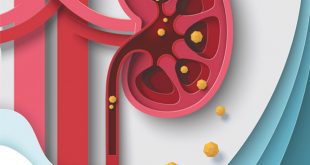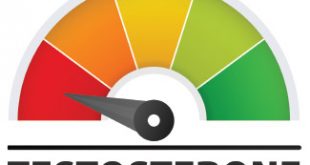How to Recognize and Identify the Signs of a Stroke
 Knowing the signs and symptoms of an impending stroke can save lives. Every year in the United States nearly 800,000 people will suffer from a stroke. If it’s not caught early enough, it can lead to death, paralysis, cognitive impairment, aphasia and many more complications.
Knowing the signs and symptoms of an impending stroke can save lives. Every year in the United States nearly 800,000 people will suffer from a stroke. If it’s not caught early enough, it can lead to death, paralysis, cognitive impairment, aphasia and many more complications.
Dr. Suchi Chaudhary, a board-certified neurologist and Stroke Medical Director at Heart of Florida Regional Medical Center in Davenport, FL., said time is of the essence when dealing with someone who is having a stroke. Heart of Florida Regional Medical Center is a Primary Stroke Center accredited by the Joint Commission and American Heart Association/American Stroke Association.
“There is a window of time in which a person needs to have medical intervention to help avoid permanent complications,’’ Dr. Chaudhary said. “We recently had a woman come to the ER and we were able to see her quickly and treat her with TPA (Tissue Plasminogen Activator). It was 25 minutes from the time she came in the door to the time we gave her the TPA. I was quickly able to see her improving. That is why we want everyone to know about the signs and symptoms of a stroke and the important of acting quickly.’’
Dr. Chaudhary said although TPA can break through a blood clot, it must be given within three to four hours of the onset of symptoms. Not everyone with a stroke can receive the clot-busting drug so it is still important to get the person to a hospital quickly.
Signs and Symptoms
Adding to the original FAST acronym, BE FAST adds two additional stroke symptoms, which help individuals recognize and prevent 95 percent of acute strokes.
B – Balance loss
E – Eyesight changes
F – Face drooping
A – Arm weakness
S – Speech difficulty
T – Time to call 911
Gloria Ceballos, the Chief Nursing Officer at Heart of Florida Regional Medical Center, said treatment for someone suffering a stroke has improved.
“There have been a lot of advances in research. There are simple steps people can follow to recognize the signs of a stroke and there are things people can do to help lessen their chances of having a stroke,’’ she said.
Staying Healthy and Avoiding Stroke Complications
• Keep your weight down.
• Workout (30 minutes of cardiovascular exercise daily).
• Eating a healthy diet of vegetables, fruit and lean protein.
• Maintain a normal blood pressure.
• Regulate lipid levels and any cholesterol issues.
• Manage your stress.
• Get regular physicals and check-ups.
• Know the signs of stroke.
• Don’t delay, if you or someone you know has stroke symptoms
Seconds matter during a stroke. In stroke care the saying is “Time is Brain” because when an acute stroke is in progress, a patient is losing 2 million brain cells per minute. The short term and long term effects of a stroke are different for every person. But what is a fact is that the quicker care is administered, the better the outcome.
Dr. Chaudhary said the type of stroke a person suffers determines the type of treatment they receive.
There are Several
Different Types of Strokes:
• Hemorrhagic strokes are when a damaged blood vessel begins to bleed then ruptures.
• Ischemic strokes are formed by blood clots that obstruct a blood vessel that supplies blood to the brain.
• TIA (Transient Ischemic Attack), also known as a mini-stroke, is caused by a temporary clot that blocks blood flow.
*Acute Ischemic Stokes account for 87% of all strokes. When a stroke happens, minutes matter to save lives and to alleviate permanent damage to the brain and body.
Knowing the signs and symptoms of a stroke can save a life. To learn more about ways to help lessen the chances of suffering a stroke, call to make an appointment with one of our Primary Care providers at 844-634-3627 or visit our web site at HeartOfFloridaPhysicianGroup.com.
About Heart of Florida
Regional Medical Center
Heart of Florida Regional Medical Center believes in providing safe, high quality integrated healthcare and the best experience for our patients and our community. As a licensed 193-bed acute care hospital accredited by the Joint Commission, an accredited Chest Pain Center by the American College of Cardiology, and a Primary Stroke Center by the Joint Commission and American Heart Association/American Stroke Association, Heart of Florida Regional Medical Center puts quality health care front and center. For outpatient services, the hospital offers outpatient imaging, rehabilitation, laboratory services and an award-winning wound care center. Heart of Florida Regional Medical Center is associated with two urgent care centers, an occupational health program, an ambulatory surgery center and an employed physician group to better serve its community. To learn more about inpatient or outpatient services, community education, or to find a physician, visit www.HeartOfFlorida.com or call 866-997-DOCS. Heart of Florida Regional Medical Center is owned in part by physicians.
Heart of Florida Regional Medical Center is located at
40100 US Hwy 27, Davenport, FL 33837.
HeartOfFloridaPhysicianGroup.com
Check Also
I Have a Wait Problem
You’re reading a health and wellness magazine and you’re thinking: that guy can’t spell. But …
 Central Florida Health and Wellness Magazine Health and Wellness Articles of the Villages
Central Florida Health and Wellness Magazine Health and Wellness Articles of the Villages



